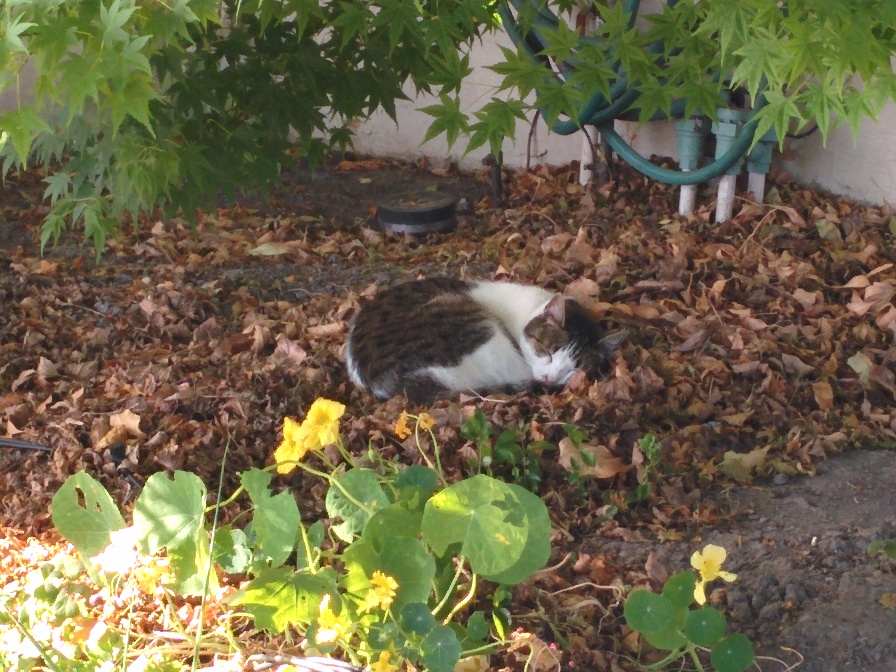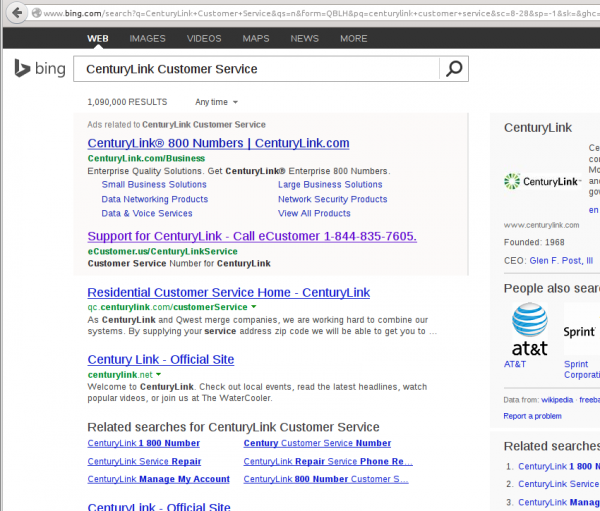This page features every post I write, and is dedicated to Andrew Ho.
There seems to be some backlash going on against the religion of “Agile Software Development” and it is best summarized by PragDave, reminding us that the “Agile Manifesto” first places “Individuals and interactions over processes and tools” — there are now a lot of Agile Processes and Tools which you can buy in to . . .
He then summarizes how to work agilely:
What to do:
Find out where you are
Take a small step towards your goal
Adjust your understanding based on what you learned
Repeat
How to do it:
When faced with two or more alternatives that deliver roughly the same value, take the path that makes future change easier.
Sounds like sensible advice. I think I’ll print that out and tape it on my display to help me keep focused.
Feedback Welcome
I had the worst experience at work today: I had to prepare a computer for a new employee. That’s usually a pretty painless procedure, but this user was to be on Windows, and I had to … well, I had to call it quits after making only mediocre progress. This evening I checked online to make sure I’m not insane. A lot of people hate Windows 8, so I enjoyed clicking through a few reviews online, and then I just had to respond to Badger25’s review of Windows 8.1:
I think you are being way too easy on Windows 8.1 here, or at least insulting to the past. This isn’t a huge step backwards to the pre-Windows era: in DOS you could get things done! This is, if anything, a “Great Leap Forward” in which anything that smells of traditional ways of doing things has been purged in order to strengthen the purity of a failed ideology.
As far as boot speed, I was used to Windows XP booting in under five seconds. That was probably the first incarnation of Windows I enjoyed using. I just started setting up a Windows 8 workstation today for a business user and it is the most infuriatingly obtuse Operating System I have ever, in decades, had to deal with. (I am a Unix admin, so I’ve seen things….) This thing does NOT boot fast, or at least it does not reboot fast, because of all the updates which must be slowly applied.
Oddly enough, it seems that these days, the best computer UIs are offered by Linux distros, and they have weird gaps in usability, then Macs, then … I wouldn’t suggest Windows 8 on anyone except possibly those with physical or mental disabilities. Anyone who is used to DOING THINGS with computers is going to feel like they are using the computer with their head wrapped in a hefty bag. The thing could trigger panic attacks.
Monday is another day. I just hope the new employee doesn’t rage quit.
Feedback Welcome
The Friends of Caltrain sent me e-mail touting progress on public transportation and density along the Peninsula, with provocative news that for the first time in its history, Santa Clara could build a transit service that is faster than driving.
I think the El Camino BRT could be a great project to transform El Camino Real from a ghetto of 1950s strip malls into the sort of place where people would go to enjoy shopping. Maybe. Anyway, the news that a dedicated lane from Santa Clara to Palo Alto could make the bus faster than cars excited me. I’ll try to be at the Sunnyvale meeting this evening, and I also submitted my own enthusiasm to our governments via Transform’s handy link:
I used to commute along El Camino from Mountain View to Palo Alto. I switched to the bus out of environmental concerns. El Camino has the best transit service in the county but it still took 2-3 times longer to take the bus than it would have taken to drive. Now it sounds like you could get BRT running on El Camino FASTER than cars? YES!! If the cars get slowed a bit that’s not such a big deal, especially since any driver going any distance knows that Central Expressway / Alma is a much nicer car trip. Even though I now live 1.5 miles off of El Camino in Sunnyvale, if there were excellent transit services I would be tempted to hop on the 55, walk, or bike to enjoy the transit corridor, especially for trips up to Mountain View or Palo Alto or Stanford Shopping Center. What a pleasure it would be to not have to hassle with parking, traffic, or the Caltrain schedule. If it were sufficiently fast, I would totally use that as a commute option up to Menlo Park.
Also, I’d probably be more inclined to visit Santa Clara.
Thanks,
-danny
2 Comments
I have a playbook which installs and configures NRPE. The packages and services are different on Red Hat versus Debian-based systems, but my site configuration is the same. I burnt a fair amount of time trying to figure out how to allow the configuration tasks to notify a single handler. The result looks something like:
# Debian or Ubuntu
- name: Ensure NRPE is installed on Debian or Ubuntu
when: ansible_pkg_mgr == 'apt'
apt: pkg=nagios-nrpe-server state=latest
- name: Set nrpe_handler to nagios-nrpe-server
when: ansible_pkg_mgr == 'apt'
set_fact: nrpe_handler='nagios-nrpe-server'
# RHEL or CentOS
- name: Ensure NRPE is installed on RHEL or CentOS
when: ansible_pkg_mgr == 'yum'
yum: pkg={{item}} state=latest
with_items:
- nagios-nrpe
- nagios-plugins-nrpe
- name: Set nrpe_handler to nrpe
when: ansible_pkg_mgr == 'yum'
set_fact: nrpe_handler='nrpe'
# Common
- name: Ensure NRPE will talk to Nagios Server
lineinfile: dest=/etc/nagios/nrpe.cfg regexp='^allowed_hosts=' line='allowed_hosts=nagios.domain.com'
notify:
- restart nrpe
### A few other common configuration settings ...
Then, over in the handlers file:
# Common
- name: restart nrpe
service: name={{nrpe_handler}} state=restarted
The trick boiled down to using the set_fact module.
Feedback Welcome
We had company over Wednesday evening. Friends of the family who have cat-sat for us. They brought dim sum. After dinner we sat around chatting. I got a call on my mobile from a 408 number. I took it.
“Are you the owner of Maxwell?”
“I am. Is he causing trouble?”
It was the opposite. I grabbed a cardboard box and hustled down to the corner, where a small crowd had gathered. The woman who had called me said he had been standing in the street, looking the other way, when the car hit him. He died instantly. She removed him from the street and found my number on the tag. We hugged. She was obviously a cat person, who was glad that he had a collar, a bell, and an identification tag.
I brought him home. He rested briefly where his feline companion Maggie took a last opportunity to groom him. The young woman who drove the car and her father came by to express their remorse and see if they could make amends, but there was nothing to be done. The young woman was in tears. She wants to be a veterinarian. The Father remembers dogs who had been lost to cars. We agreed that the Humane Society might receive a donation. We shook hands several times. What a way to meet the neighbors.

Maxwell napping in the front yard in June.
In the back yard, a shallow grave was dug. Maxwell was wrapped in a familiar fabric, and lain to rest. Words were said.
It will take some time to feel his absence and truly mourn his departure. He might have lived a much longer life as a house cat, but he loved the outdoors and was well known in the neighborhood. He lived as he chose and while his end was violent, it was swift and he did not suffer.
We’re going to miss you, Maxwell!
Feedback Welcome
Apple ships some nice hardware, but the Mac OS is not my cup of tea. So, I run Ubuntu (kubuntu) within VMWare Fusion as my workstation. It has nice features like sharing the clipboard between host and guest, and the ability to share files to the guest. Yay.
At work, I have a Thunderbolt display, which is a very comfortable screen to work at. When I leave my desk, the VMWare guest transfers to the Retina display on my Mac. That is where the trouble starts. You can have VMWare give it less resolution or full Retina resolution, but in either case, the screen size changes and I have to move my windows around.
The fix?
1) In the guest OS, set the display size to: 2560×1440 (or whatever works for your favorite external screen …)
2) Configure VMWare, per https://communities.vmware.com/message/2342718
2.1) Edit Library/Preferences/VMware Fusion/preferences
Set these options:
pref.autoFitGuestToWindow = "FALSE"
pref.autoFitFullScreen = "stretchGuestToHost"
2.2) Suspend your VM and restart Fusion.
Now I can use Exposé to drag my VM between the Thunderbolt display and the Mac’s Retina display, and back again, and things are really comfortable.
The only limitation is that since the aspect ratios differ slightly, the Retina display shows my VM environment in a slight letterbox, but it is not all that obvious on a MacBook Pro.
Feedback Welcome
I reported the following to the FBI, to LogMeIn123.com, to Century Link, and to Bing, and now I’ll share the story with you.
Yesterday, May 12, 2014, a relative was having trouble with Netflix. So she went to Bing and did a search for her ISP’s technical support:

Bing leads you to a convenient toll-free number to call for technical support!
She called the number: 844-835-7605 and spoke with a guy who had her go to LogMeIn123.com so he could fix her computer. He opened up something that revealed to her the presence of “foreign IP addresses” and then showed her the Wikipedia page for the Zeus Trojan Horse. He explained that she would need to refresh her IP address and that their Microsoft Certified Network Security whatevers could do it for $350 and they could take a personal check since her computer was infected and they couldn’t do a transaction online.
So, she conferenced me in. I said that she could just reinstall Windows, but he said no, as long as the IP was infected it would need to be refreshed. I said, well, what if we just destroyed the computer. No, no, the IP is infected. “An IP address is a number: how can it get infected?” I then explained that I was a network administrator . . . he said he would check with his manager. That was the last we heard from him.
I advised her that this sounded very very very much like a phishing scam and that she should call the telephone number on the bill from her ISP. She did that and they were very interested in her experience.
I was initially very worried that she had a virus that managed to fool her into calling a different number for her ISP. I followed up the next day, using similar software to VNC into her computer. I checked the browser history and found that the telephone number was right there in Bing for all the world to see. She doesn’t have a computer virus after all! (I’ll take a cloer look tonight . . .)
I submitted a report to the FBI, LogMeIn123.com, Bing, and Century Link. And now I share the story here. Its a phishing scam that doesn’t even require an actual computer virus to work!
Feedback Welcome

Forney engine pulls Lake Street Elevated Railroad train over Lake Street in Chicago, 1893.
Thanks, Chuckman!!
Feedback Welcome
As a SysAdmin, people ask me how much they need to worry over the heartbleed vulnerability. Here’s my own take:

Google were known to be vulnerable. They co-discovered the vulnerability and deployed fixes quickly. I like to believe they are analyzing the scope and likelihood of user password compromise and will issue good advice on whether Gmail passwords should be updated.
For everything else, my small opinion is “don’t panic.” Not every web site would have been affected. The Ops folks at each site need to patch their systems and assess the extent to which credentials may have been compromised, then take appropriate steps to mitigate compromised data, which might include asking users to set new passwords. But if they’re still waiting on some patches, then submitting a new password could actually put both passwords at risk.
For other important passwords, like your bank, check up on what they’re recommending that you do. If a site is important to you and they offer two-factor auth, go for it: that typically means that if you log on from a new computer they’ll text a one-time pin code to your mobile phone to double-check that it’s you.
Feedback Welcome
I want to launch a service which has its own complex start/stop script at boot, and I want to launch it as a non-login user. So, I dig into upstart. The cookbook … is not a cookbook. So, here’s is my little recipe:
# /etc/init/openfire.conf
description "Run OpenFire Jabber Server"
start on runlevel [2345]
stop on runlevel [!2345]
setuid openfire
setgid openfire
pre-start exec /opt/openfire/bin/openfire start
post-stop exec /opt/openfire/bin/openfire stop
All this does is, run /opt/openfire/bin/openfire start or /opt/openfire/bin/openfire stop at the appropriate time. Allegedly, this is suboptimal, but it works for me.
I tested with:
sudo start openfire
sudo stop openfire
sudo reboot # :)
Another sample, where the idiom is “cd to a directory and run a command:”
# /etc/init/haste-server.conf
description "Private Pastebin Server"
start on runlevel [2345]
stop on runlevel [!2345]
setuid haste
setgid haste
console log
script
cd /opt/haste-server
npm start
end script
#respawn
Thank you, htorque on askubuntu!
Feedback Welcome
How do you triumph against an oppressor who has an overwhelming advantage in terms of firepower? If you are Mahatma Gandi, Martin Luther King Jr, Nelson Mandela, or Ukrainian Colonel Yuri Mamchur, you practice non-violent direct action. I hope that Ukraine may yet share in the triumph of this strategy.

Colonel Yuri Mamchur, Hero of Belbek, UA
I will tell the story from Simon Shuster’s Twitter stream:
UPDATE: Very Good Summary on Buzzfeed
Commander of Ukraine’s Belbek base just got a call from Russian counterpart. Another ultimatum: surrender by 16:00. This is the 3rd one
Incredible. Half the Ukraine troops from Belbek base now marching to airstrip occupied by Russians. Unarmed. To take it back.
The column of troops, carrying the Ukraine and Soviet (!) flags, about to march on the Russian occupied airstrip. pic.twitter.com/prR9rfP7Fp
Ukraine column has reached Russian checkpoint. Russians begin firing in the air. Ukrainians keep marching
Russians call commander to negotiate. Troops have RPGs and machine guns trained on the column of unarmed Ukrainian soldiers. Belbek, Crimea
Russians back down, allow 10 Ukraine soldiers to take up positions at occupied base, but still awaiting orders from Moscow
Face off between Ukraine base commander Col. Yuli Manchur and Russian officer at occupied Belbek airbase pic.twitter.com/6N10wuezef
The Ukraine commanders just received word that Putin ordered the Russian troops to withdraw. Is that true?
Officer who shot in air as Ukraine column marched up to him said he was on the Maidan fighting ‘fascists’ with a stick. Presumably Berkut
The red flag the Ukrainians marched with is the banner of the fighter pilots who fought Nazis in 1941 and guarded the Yalta Conference
Ukraine Colonel still negotiating, Russian snipers & RPGs still aiming at column of soldiers. But deescalation is clear, at least in Belbek
Personnel carrier just arrived, disgorging armed Russian troops at checkpoint. Ukraine commander just finished negotiating.
Ukraine commander demands to guard the base jointly with Russians, who pledge to give their commanders’ response by 12:00, in 2 hours
Russian military truck just brought a handful of (probably Russian) news crews to the Belbek standoff. They’re now filming from Russian side
Ukraine’s 204th tactical aviation brigade when they just arrived to face down the Russians in Belbek: pic.twitter.com/Zz91TuJHXf
Marching along with the Ukraine brigade were the wives of four of the officers, all standing surrounded by Russian snipers at Belbek
Phone battery dying. Read @Time a bit later for the hair-raising conclusion of the ballsiest move of the Crimean conflict so far. #Belbek
I first read of the story via ABC News. I think this is an excellent strategy to employ against the Russian occupation. Putin claims the Russians are there to defend against violent acts. It would appear that the Ukrainian Military are Not the Problem here. I hope this tactic is employed further by Ukraine’s soldiers and its people, and I wish to see them succeed. Mamchur and his soldiers are heros of humanity.
Feedback Welcome
Early to bed, Thursday night. Tommy sleeps through the nights for the most part but this morning at 4:30am he had the hunger. Daddy offered formula, but Tommy didn’t want formula. Daddy set him back in the crib, and Tommy cried. Daddy offered formula again. 2oz down, Tommy cries as Daddy fixes more. 4oz down, then Tommy cries as Daddy fixes more. Another 4oz nearly down and Tommy urps a fountain of undigested formula all over himself and Daddy’s bathrobe. Mommy offers to nurse, and before long mother and son have dozed off together. But Daddy can’t sleep, and so it is off to the coffee shop for a bit of research, then off to work . . .
. . . home a bit early from work, Daddy is beat but can’t settle into a nap. Mommy has an evening shift, so Daddy picks his son up from day care. Smiles. Joy. Upon returning home, the boy is strapped to Daddy’s chest for a pleasant evening stroll as the sun sets, with a soft musical accompaniment from Daddy’s mobile phone. Daddy sings softly to his boy, and Tommy smiles at the mujeres strolling around the park, and can not take his eyes off the lone basketball player, or the groups practicing soccer. Dad passes a few stray balls back to their keepers, and is deeply appreciative of the warm spring vibe. In February. While the rest of the country is snowed in it is already warm in the drought state. This evening in February, the feeling of spring, enjoying soccer with strangers and with the baby, this is a memory one wants to keep.
Home. Time to play drop the ball over the baby gate. Tommy drops to Daddy, Daddy picks up the ball, drops it at Tommy, who grabs it and drops it to Daddy, who leans over to fetch it, drops it to Tommy, and the ball hits the floor and wobbles erratically over the half-century-old hardwood floor, under the table. Daddy reaches over the gate to pull a chair out so Tommy can crawl under the table and fetch the ball, to drop over the baby gate again . . . and so it goes. Bath time, more formula, a reading break, which devolves into Tommy pulling books out of his box and dropping them, one by one, to the bedroom floor. Thud after thud after thud: endlessly fascinating. Eyes are rubbed, the formula is consumed and baby falls asleep and is put to bed.
A day and an evening, not so much unlike the day before, or the day after, but each a page in an unfolding story. And this, a bookmark for Daddy’s memory.
2 Comments
« Newer Stuff . . . Older Stuff »
Site Archive





